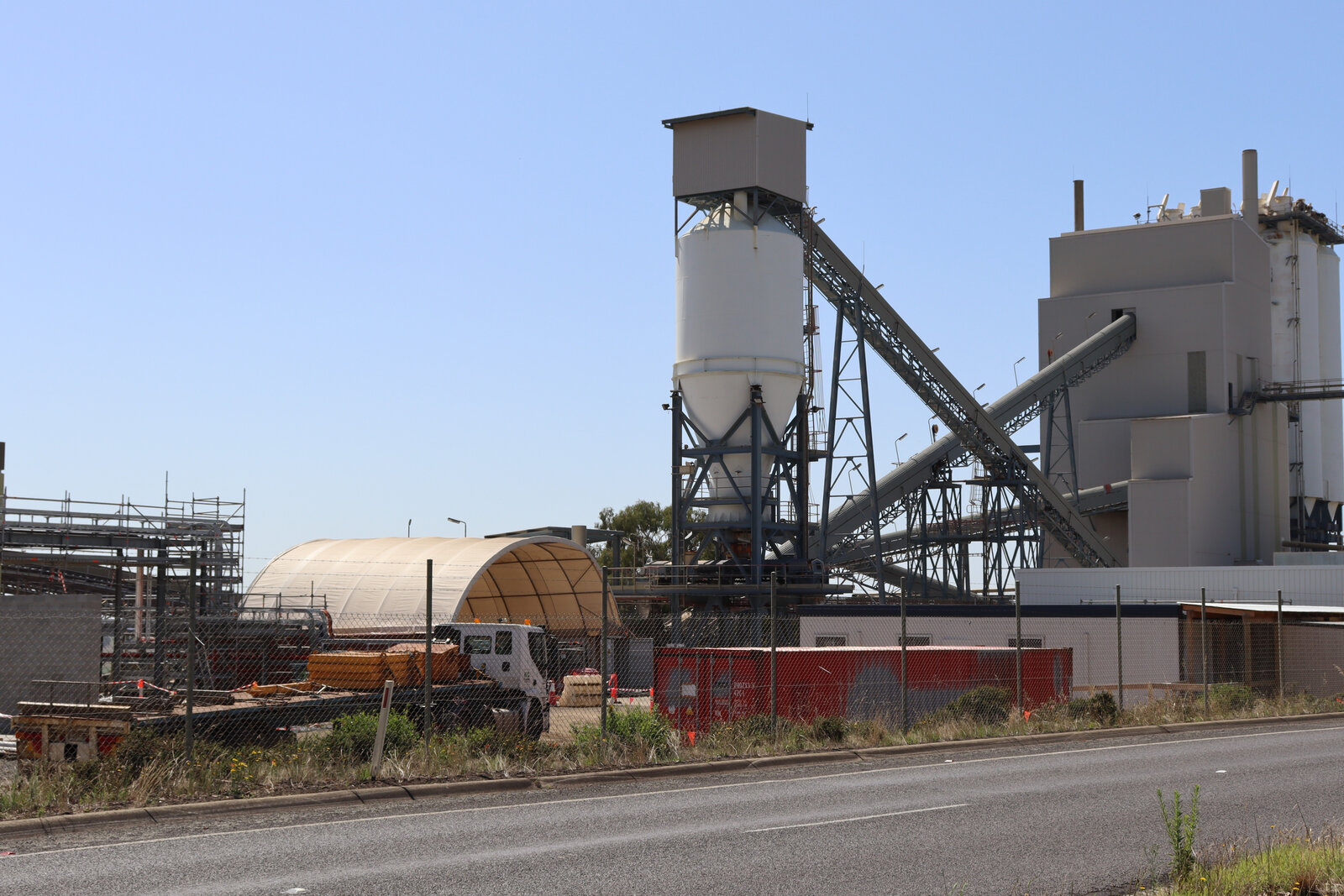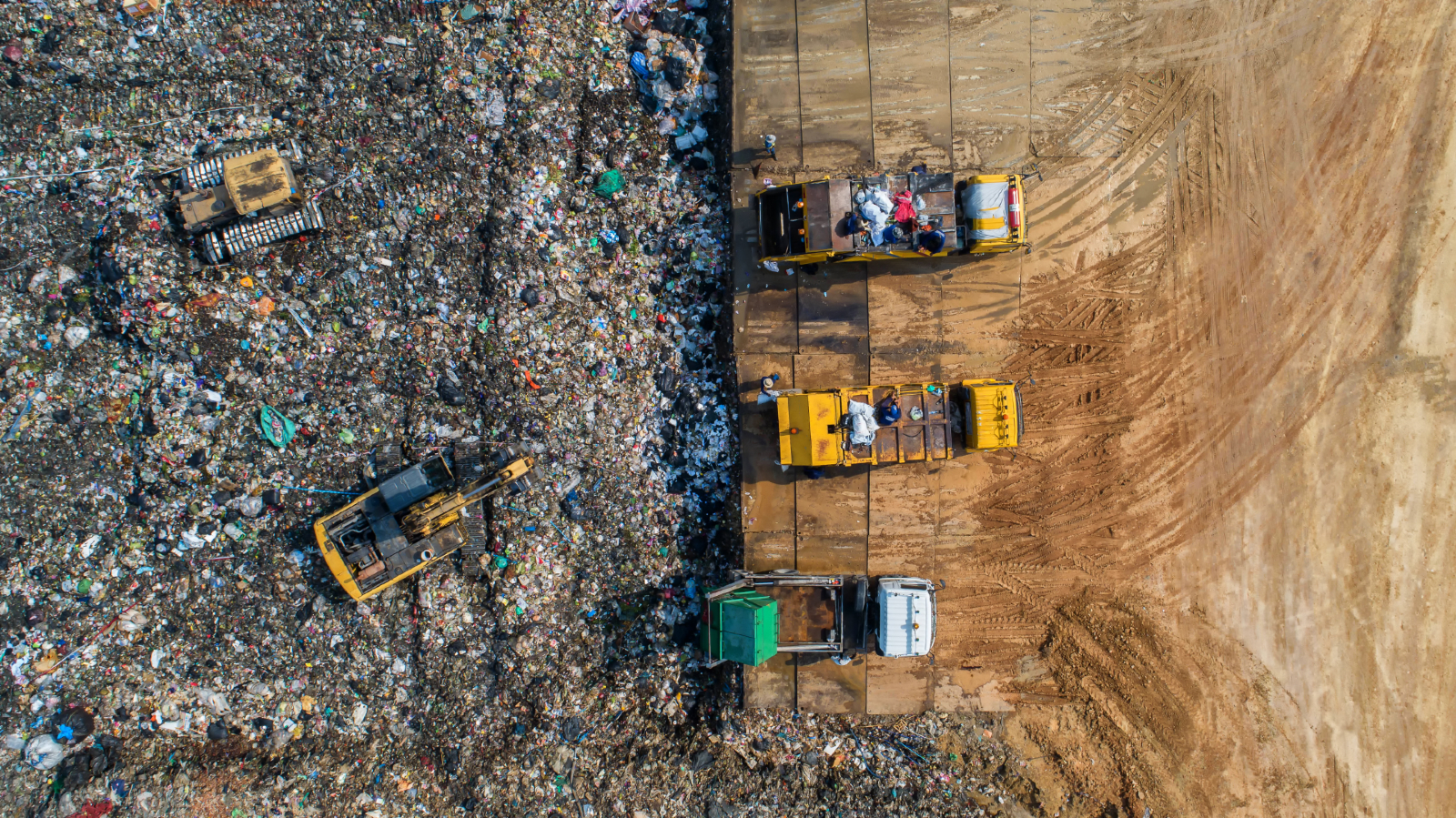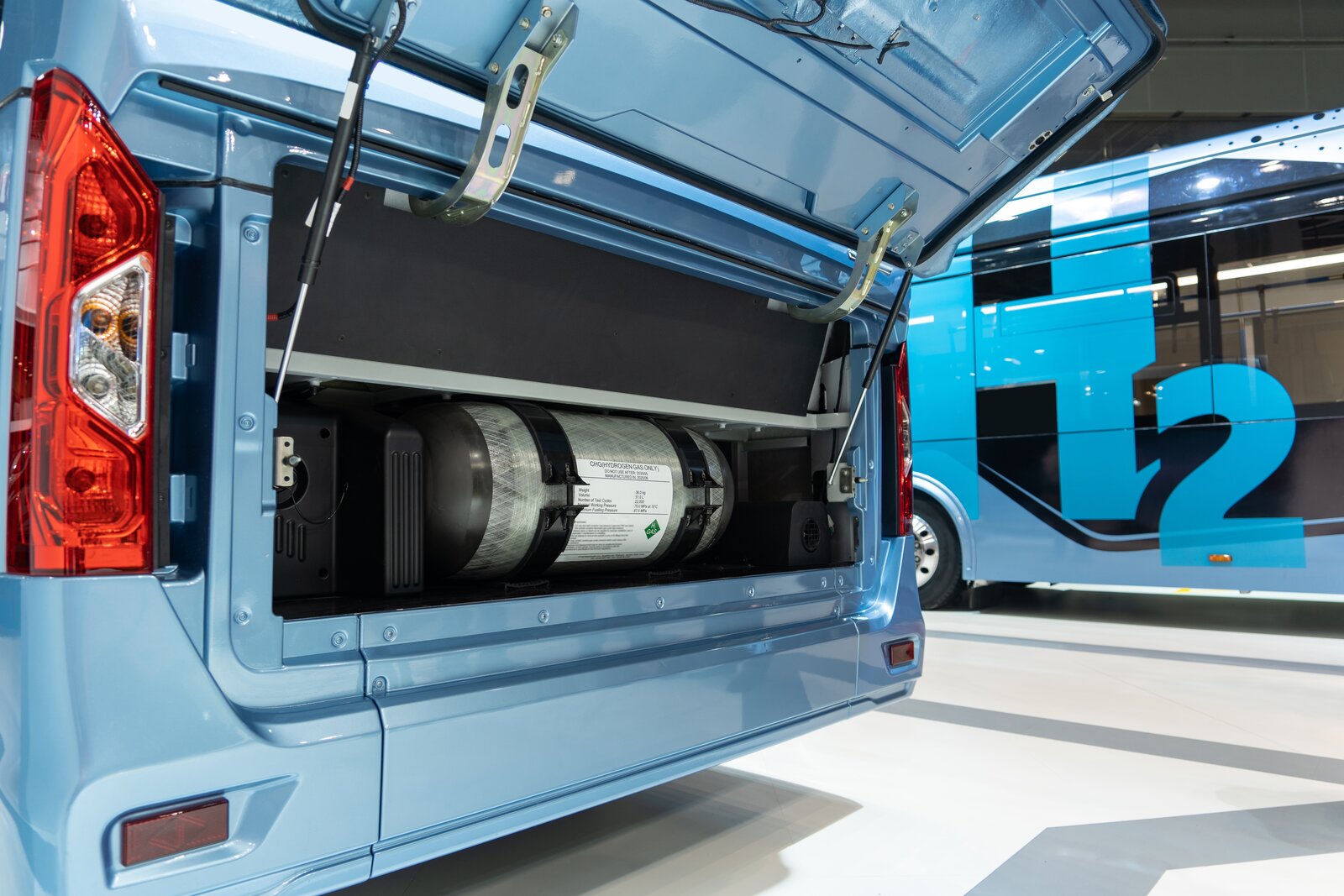- OPEC Fund raises USD 1 bn from its first sustainability bond. (Climate Finance)
- It’s confirmed: Masdar intends to issue its maiden green bond this year. (Climate Finance)
- New Africa-focused initiative to unlock USD 850 mn in funding for the continent. (Climate Finance)
- The UAE set to turbocharge its EV charging infrastructure + EV battery recycling efforts. (Electric Vehicles)
- The UAE wants to produce its own SAF with a little help from friends. (Sustainable Aviation)
- Adnoc will begin capturing and storing CO2 into rocks in 2Q 2023. (Decarbonization)
- The UAE has its sights set on a lower-emissions methanol plant. (Decarbonization)
- KSA’s Acwa Power will develop Uzbekistan’s first green hydrogen and green ammonia projects. (Renewables)
- UAE’s Tadweer inks agreements worth USD 545 mn in waste management. (Waste Management)
- Turkey announces new energy plan to meet 2053 net zero target. (Policy)
- UAE explores green hydrogen public transport + Abu Dhabi sets sights on first food-grade plastic recycling facility. (On Our Radar)

Monday, 23 January 2023
OPEC Fund raises USD 1 bn from its first sustainability bond
TL;DR
WHAT WE’RE TRACKING TODAY

Good morning, friends. We have a finance-heavy (and altogether rather meaty( issue to kick off the week and some EV, decarbonization and sustainable aviation stories from the UAE and KSA. Let’s jump right in.
THE BIG CLIMATE STORY- The OPEC Fund has raised USD 1 bn from a three-year sustainability bond that will be used to finance or refinance sustainable development projects aligned with the fund’s goals, and UAE’s Masdar has confirmed plans to raise as much as USD 750 mn in a maiden green bond issuance in 2H 2023 to help finance its ambitious global expansion plans.
^^ We have chapter and verse on these stories and more in the news well, below.
THE BIG CLIMATE STORY OUTSIDE THE REGION- Environmentalists, trade unions call on Biden to remain steadfast on EV tax credit program in the face of EU opposition: US environmental groups and trade union representatives last week urged President Joe Biden to resist calls from the EU and other allies to amend EV tax incentives put forward under his Inflation Reduction Act (IRA). The IRA includes a consumer tax credit mechanism of up to USD 7.5k per vehicle on North American-made EVs, which allies have criticized for potentially driving clean energy investment into US industry, at the expense of other locations. US Trade Representative Katherine Tai previously noted that the Biden administration wants to avoid an EV subsidy race with Europe. The story is attracting some international coverage: Reuters | Bloomberg | Wall Street Journal.
PSA- Qatar-based SMEs working in clean energy can access low-interest loans from state-owned Qatar Development Bank, according to a statement. The scope of projects includes waste management and treatment, recycling, renewables, clean tech production, and carbon reduction.
PSA #2- Morocco’s senate has approved a bill for the self-production of electrical energy, according to a statement. The bill — unanimously approved by the House of Representatives last December — will allow citizens, SMEs, and large enterprises to generate their own electricity, particularly from renewable sources.
WATCH THIS SPACE #1- The UAE is exploring carbon trading: The UAE’s Securities and Commodities Authorities is in talks with the Climate Change and Environment Ministry and other stakeholders to develop a carbon trading initiative in an effort to offset the country’s carbon footprint and reach net zero in 30 years, the National reports. This follows the UAE’s Abu Dhabi Global Market announcing plans in November to launch the “a fully regulated” voluntary carbon market in partnership with Singapore-based digital exchange AirCarbon.
WATCH THIS SPACE #2- French utility company Engie wants to expand in the GCC renewables market, country manager for the GCC and Pakistan Frederic Claux told the National last week. Renewables are a priority for the company as it currently eyes the 1.5 GW Al Ajban solar plant in Abu Dhabi and new wind project proposals in Saudi Arabia. Engie is also working on a 30 MW solar project with the KSA’s National Agricultural Development Company. Last January, Engie signed an agreement with Masdar and Fertiglobe to co-develop a green hydrogen facility in the UAE.
WATCH THIS SPACE #3- Acwa Power’s first green hydrogen plant will be up and running in 2026, CEO Paddy Padmanathan said on the sidelines of the World Economic Forum (WEF) in Davos, Al Arabiya reports. Once operational, the plant will produce 650 tons of green hydrogen per day, to be used as feedstock for green ammonia — of which some 1.15 mn tons will then be shipped to Europe and Southeast Asia, Padmanathan added. We assume Padmanathan is referring to Acwa’s NEOM green hydrogen plant, though Al Arabiya doesn’t specify this.
CLIMATE DIPLOMACY- European Investment Bank President Werner Hoyer met Egypt’s International Cooperation Minister Rania Al Mashat at Davos to discuss next steps in the lender’s role as “main development partner” for the Egyptian government’s landmark Nexus on Water, Food and Energy (NWFE) climate program, according to a cabinet statement. The pair touched on subsequent collaborations in the fields of sustainable green industries, the enhancement of food security, and mobilizing more support for the NWFE platform.
|
***
YOU’RE READING ENTERPRISE CLIMATE, the essential MENA publication for senior execs who care about the world’s most important industry. We’re out Monday through Thursday at 4am Cairo / 5am Riyadh / 6am UAE.
Were you forwarded this email? Get your own subscription without charge here or reach out to us on climate@enterprisemea.com with comments, suggestions and story tips.
***
SIGN OF THE TIMES- The narrative around ESG investing has become riddled with personal attacks and the problems “demonized,” BlackRock CEO Larry Fink told Bloomberg TV at the WEF (watch, runtime: 18:56). BlackRock — which had some USD 8.59 tn in assets under management at the end of 2022 — has become a “political punching bag” for both right- and left-leaning forces when it comes to the issue of ESG investing, Bloomberg argues. While some say that its policies negatively impact the fossil fuel industry to the detriment of the economy, others believe it isn't going far enough to address climate change, the outlet adds.
CLIMATE FINANCE
OPEC Fund raises USD 1 bn from its first sustainability bond

OPEC Fund issues maiden sustainability bond: The Vienna-headquartered OPEC Fund for International Development has raised USD 1 bn from a three-year fixed-rate sustainability bond that will be used to finance or refinance sustainable development projects aligned with the fund’s goals, including renewable energy, it said in a statement on Friday. The sustainable bond — the OPEC Fund’s first — was issued last Wednesday, the statement notes.
Who bought in? The bond drew “strong demand” from investors globally, the statement said, without disclosing the subscription rate. 52% of the investors were from Europe, MENA and Africa, 27% from the Asia-Pacific area, and 21% from North America. Central banks and other state institutions comprised 62% of the investors, 19% were banks, 9% were asset managers, and 8% were ins. or pension funds, the statement adds, without noting what the remaining 2% consisted of.
Where will the money go? Money raised from the issuance will be allocated according to criteria in the fund’s Sustainable Development Goals Bond Framework (pdf), published in September last year, the statement says. This document is aligned with key green finance guideline documents published by the International Capital Market Association (ICMA), it adds. The OPEC Fund finances development projects in low and middle-income countries.
Advisors: Citi, Crédit Agricole, Goldman Sachs, Nomura and TD Securities were lead managers on the bond issue and Crédit Agricole Corporate and Investment Bank was the sole sustainability advisor, according to the statement.
CLIMATE FINANCE
It’s confirmed: Masdar intends to issue its maiden green bond this year

Masdar aims to raise USD 750 mn in debut green bond sale: UAE clean energy firm Masdar plans to raise as much as USD 750 mn in a maiden green bond issuance to help finance its ambitious global expansion plans, Chief Financial Officer Niall Hannigan told Bloomberg at the Abu Dhabi Sustainable Finance Forum, confirming reports we picked up last Wednesday. The company will likely issue the bonds in 2H 2023, Hannigan added. It intends to move forward “subject to market conditions,” Reuters reports CEO Mohamed Jameel Al Ramahi saying at the forum on Thursday.
Annual issuances could be in the pipeline: “Given the growth ambitions we have as a business and the pipeline we have in place, I would be expecting that we’re likely to be an annual issuer,” Hannigan told Bloomberg.
The next steps: Masdar will publish its first green finance framework “within weeks,” Reuters quotes Al Ramahi as saying. Establishing a green or sustainable financing framework essentially lays the groundwork for a green bond issuance, head of MENA Debt Capital Markets at HSBC Khaled Darwish recently told Enterprise Climate.
Two areas it appears to be eyeing closely? Green hydrogen and US investment: Masdar is “exploring” prospects in the still-nascent green hydrogen sector, Hannigan told Bloomberg. The company is reportedly looking at using solar and wind assets to power green hydrogen projects in Egypt, Oman, “and other areas with export and transport connections,” the outlet notes. The firm is also eyeing M&A prospects as a “significant part of [its] growth strategy,” with the US being “an increasingly attractive market,” Hannigan said.
IN OTHER MASDAR NEWS- Masdar is continuing its African expansion: The renewables giant inked two agreements to develop solar projects in Angola and Uganda, according to a statement. The company will build 2 GW worth of solar projects in Angola with the Energy and Water Ministry, and 1 GW worth of solar projects in Uganda with the Energy and Mineral Development Ministry. No financial details were announced for the projects.
Another step in Africa’s green transition: The Emirati renewables giant announced two new agreements in Ethiopia and Zambia with a total capacity of 2 GW per country last week. The Zambian solar projects are estimated to cost USD 2 bn, but no financial details on the Ethiopian project were revealed.
CLIMATE FINANCE
New Africa-focused initiative to unlock USD 850 mn in funding for the continent

The Africa Renewable Energy Manufacturing Initiative (AREMI) will invest USD 850 mn towards the continent’s clean energy manufacturing capacity, according to a press release published last week. AREMI aims to boost climate business and investment to scale renewable energy on the continent, which it identifies as having a potential 1.2 TW of energy, increasing Africa’s total GDP by 6.4% by 2050.
How will they do it? AREMI will target countries with similar development needs and policy including China, India, and other Southeast Asian countries who are heavily experienced in green manufacturing for potential investments and partnerships with African countries, the statement notes.
Where’s the money likely to go? Algeria, Egypt, Morocco, and Tunisia were identified in a first wave of countries “that have medium or high feasibility to localize solar or battery storage manufacturing capacities” in a Sustainable Energy for All (SEforALL) report released in conjunction with the launch of the initiative, alongside Ghana, Namibia, South Africa, and Tanzania.
Who’s backing it? Launched at Abu Dhabi Sustainability Week, AREMI was launched by SEforALL, the African Climate Foundation, Bloomberg Philanthropies, ClimateWorks Foundation, and the Chinese Renewable Energy Industries Association.
ELECTRIC VEHICLES
UAE set to turbocharge its EV charging infrastructure

Abu Dhabi’s EV infrastructure is getting a boost: UAE fuel distribution company Adnoc Distribution — an Abu Dhabi National Oil Company (Adnoc) subsidiary — is partnering with Abu Dhabi National Energy Company (Taqa) to establish a joint venture called E2GO to build and operate electric vehicle (EV) infrastructure in Abu Dhabi and the wider UAE, Taqa announced in a statement on Thursday.
What do we know about E2GO? The company is set to become the main provider of EV charging points and the infrastructure needed for EV growth in Abu Dhabi, the statement says. This will involve setting up a network of fast chargers at key locations, as well as parking and tolling services and digital platforms that support EV charging, it adds. No information was provided about when the company is intended to be up and running, or how much is being invested in establishing it.
Abu Dhabi is keen on strengthening EV adoption: Abu Dhabi’s Energy Department launched a new policy framework for EV charging infrastructure in May 2022 covering the regulation for ownership, installation, and management of electric vehicle supply equipment (EVSE), the electricity supply to EVSE, and the pricing mechanism to end customers, a statement on the Energy Department website notes.
IN OTHER UAE EV NEWS- The UAE is getting its first EV battery end-of-life recycling plant: Bee’ah Recycling — a subsidiary of Emirati waste management company Bee’ah — has signed an agreement with the UAE’s Energy and Infrastructure Ministry and the American University of Sharjah (AUS) to set up the country’s first recycling plant for EV batteries that have reached the end of their lifespan, according to a Wam statement published last week. No timeline or financial details were disclosed.
Who is doing what: The agreement will leverage Bee’ah’s material recovery expertise, the Energy and Infrastructure Ministry’s national vision, and the research capabilities of AUS to help identify and apply cutting-edge battery recycling tech, Bee’ah Group CEO Khaled Al Huraimel was quoted in the Wam statement as saying.
Why is this important? Lithium-ion batteries used in EVs “contain many valuable materials worth recovering,” some of which could be used to manufacture new batteries, notes a 2022 post in the Union of Concerned Scientists’ blog the Equation. By 2050, recycled materials could supply some 45–52% of cobalt, 22–27% of lithium, and 40–46% of nickel used in US EV fleets, it adds. But globally, there’s “still no real industrial sector for recycling [EV] batteries,” notes a 2022 article in the Conversation. This is mainly because the EV sector is still so new that issues including what constitutes end-of-life for a battery and what the economic model is for recycling used batteries still need to be ironed out, it adds.
SUSTAINABLE AVIATION
The UAE wants to produce its own SAF with a little help from friends

UAE is ramping up efforts on SAF production: Masdar, Adnoc, Emirates Airways, and Tadweer will conduct a joint feasibility study with BP on the production of sustainable aviation fuels (SAFs) by using solid waste and renewable hydrogen, according to a statement. The study will also explore the possibility of producing other products including renewable diesel and naphtha. Based on the results of the study, the companies could potentially set up the region’s first commercial-scale SAF production facility in Abu Dhabi.
Other UAE players are getting in on SAFs: Abu Dhabi’s Mubadala Energy, Pakistani-Arab Refinery PARCO and Austrian OMV Group are also jointly exploring sustainable aviation fuels, Wam reports.
SOUND SMART- SAFs are low-carbon alternatives to traditional jet fuel made of mustard seeds, soy beans, and non-edible oils, according to Honeywell Aerospace. Despite the growing demand for SAFs it remains an expensive alternative to conventional jet fuel according to a report (pdf) by the Riyadh-based King Abdullah Petroleum Studies and Research Center.
IN OTHER SUSTAINABLE AVIATION NEWS- Etihad Airways inked a future carbon credits from contrail management agreement with green aviation firm Satavia according to a statement. The UAE carrier and the UK-based firm’s collaboration will produce future carbon credits by managing contrail activity — short for condensation trails — the ice-particle-filled white lines visible behind airplanes that are responsible for up to 60% of the aviation industry’s climate footprint.
DECARBONIZATION
We have another decarbonization announcement from Adnoc

Adnoc starts new rock-based carbon capture project: The UAE’s Adnoc has launched the world’s first project to sequester CO2 into a carbonate saline aquifer — basically rocks — and will begin capturing and storing the CO2 in 2Q 2023, according to a Wam statement. The project is initially targeting a minimum of 18k tons per year sourced from Fertiglobe’s UAE operations, it adds. Adnoc holds a 36% stake in Fertiglobe, which is MENA’s largest nitrogen fertilizer and ammonia producer.
Enterprise, what does sequestering CO2 in a carbonate saline aquifer mean? Put simply, what we’re talking about is capturing CO2 and then injecting it into rocks — literally putting the carbon back deep in the ground. Saline aquifers are “porous and permeable reservoir rocks that contain saline fluid in the pore spaces between the rock grains.” Injecting the CO2 into this saline fluid is one of three ways (pdf) in which captured carbon can be trapped in geological formations.
This project will ultimately contribute to Fertiglobe’s production of lower-carbon ammonia, the Wam statement notes. Fertiglobe has already produced and shipped several pilot cargoes of low-carbon ammonia to Asia and Europe.
This is the latest addition to Adnoc’s recent decarbonization push: Adnoc is allocating some USD 15 bn to a raft of projects to decarbonize its operations, the Wam statement notes. Multiple new agreements were signed at Abu Dhabi Sustainability Week last week — including a partnership with Thyssenkrupp for large-scale ammonia cracking and a partnership with Fujairah Natural Resources Corporation, renewables developer Masdar, and Omani carbon removal and mineralization firm 44.01 to pilot technology that will permanently mineralize CO2 in rock formations in Fujairah.
CORRECTION- 23 January, 2023
This story was amended to correct Adnoc’s ownership stake in Fertiglobe, which is 36% and not 42% as we had originally reported. It was also amended to reflect that Fertiglobe has produced and shipped pilot cargoes of low-carbon ammonia, and has not yet begun commercial production.
DECARBONIZATION
The UAE has its sights set on a lower-emissions methanol plant

UAE’s Ta’ziz signs agreement with Proman for USD 5 bn methanol production facility: State-owned Abu Dhabi Chemicals Derivatives Company (Ta'ziz) and Switzerland-headquartered Proman have signed a shareholders’ agreement to set up the UAE’s first “world-scale” methanol production facility, according to a statement released last week. AED 18 bn (over USD 5 bn) will be invested in the first phase of development, according to the statement. The facility will be built in the Ta’ziz Industrial Chemicals Zone in Abu Dhabi’s Al Ruwais Industrial City and will be Proman’s first investment in the country. The agreement is subject to regulatory approval.
The details: The new facility will have an anticipated annual production capacity of up to 1.8 mn tons, the statement notes. Most of the chemicals manufactured in the plant will be produced in the UAE for the first time, the statement adds. These are presumably chemicals for which methanol is feedstock. Methanol has wide industrial application in areas that include fuels, solvents, pharma, and construction materials, the statement says.
Methanol is being touted as a “clean” fuel…: Compared to other fossil fuels, methanol “significantly reduces emissions of sulphur oxides, nitrogen oxides, and particulate matter,” according to methanol producer Methanex. Methanol is one of a number of so-called “alternative fuels” that have the potential to reduce emissions from global shipping — alongside biodiesel, hydrogen and ammonia — according to a 2021 Southampton University study.
…but is it really? It all depends on how it’s produced: “The carbon footprint of methanol depends strongly on the feedstock and the production pathway,” notes independent advisory firm Gear Up in a recent study (pdf). Using natural gas to produce methane is less polluting than using coal — and using renewable energy, or carbon capture, is even more climate-friendly. But the impact of methanol on decarbonizing an industry like shipping is really contingent on the source of the feedstock, the production process, and the scalability and cost of these things, according to the write-up of a 2021 webinar by the Global Maritime Forum. It is unclear from the statement what will be used as a feedstock and in the production process for Ta’ziz and Proman’s plant in the UAE.
RENEWABLES
KSA’s Acwa Power will develop Uzbekistan’s first green hydrogen and green ammonia projects
Acwa Power expands in Uzbekistan: Saudi Arabia’s renewables giant Acwa Power has signed terms of agreements with the Uzbek Energy Ministry and state-owned chemical company Uzkimyosanoat to build a green hydrogen plant and a green ammonia pilot project in Uzbekistan, the company announced in a statement. The projects would be the first of their kind in the Central Asian country.
First, green hydrogen: Acwa’s green hydrogen plant will be connected to an existing ammonia plant and will generate 3k tons of green hydrogen annually. The project is expected to be commissioned in December 2024.
Then, green ammonia: The company will conduct a feasibility study into the proposal of developing a facility to produce 500k tons of green ammonia. The study should be concluded at the end of 2024.
Acwa’s ties with Uzbekistan are strengthening: Acwa inked power purchase and investment agreements (PPA) worth USD 2.4 bn for a 1.5 GW wind energy farm in the country with the National Electric Grid of Uzbekistan.

WASTE MANAGEMENT
UAE’s Tadweer inks agreements worth USD 545 mn in waste management

UAE’s Tadweer signs agreements for waste management efforts: The Abu Dhabi Waste Management Company (Tadweer) inked five agreements with UAE-based firms in the fields of waste management and transport totaling c.USD 545 mn, Wam reports. The MoUs cover waste collection and transport, refuse container management and maintenance, and road sweeping initiatives in the emirates of Al Ain and Abu Dhabi.
The details: Participating firms include Alphamed Abu Dhabi, Terberg RosRoca Vehicle Manufacturing, Bee’ah Sharjah Environment Company, Averda Waste Management, and Nael and Bin Harmal Hydroexport.
POLICY
Turkey announces new energy plan to meet 2053 net zero target

Turkey reveals new national energy plan: Turkey will increase its quota of renewable energy generation in its energy mix by 7 percentage points by 2035 to 23.7% — up from 16.7% in 2020 — and will generate some 190 GW of clean power, Anadolu Agency reports quoting Natural Resources Minister Fatih Donmez. The country is eyeing a green hydrogen electrolyzer generational capacity totaling 2 GW in 2030, increasing to 5 GW in 2035 and 70 GW in 2053 to help realize its net-zero commitment, Donmez noted.
The details: The targeted expansion in renewables would be mainly sourced from solar and wind power projects, with nearly 74.3% of the energy boost yielded from both solar and wind. By 2035, Donmez projects the country will have a solar generation capacity totaling some 53 GW, wind power generation worth 29.6 GW, hydroelectric energy generation worth 35.1 GW, and 5.1 GW from geothermal and biomass power production plants combined. The country also plans to source over 11% of its energy needs from nuclear power, Donmez added.
Part of its climate targets: Turkey said it would raise its 2030 greenhouse gas emissions reduction target to 41% below the business as usual scenario — from 21% previously — in November.
But there’s still a question of financing: According to a statement from the European Bank for Reconstruction and Development last November, the country’s wind energy potential lacks financing. The country currently generates 11 GW from wind power, but has an untapped potential of between 40 to 50 GW from wind energy sources.
ALSO ON OUR RADAR

The UAE has inked an agreement with Korea to develop Abu Dhabi’s low-carbon hydrogen public transportation, according to a statement. The Department of Municipalities and Transport signed an MoU with Korea’s Changwon City to create action plans to set up a hydrogen charging infrastructure, the operation of hydrogen buses, and the design, operation, and maintenance of hydrogen plants and refueling stations in Abu Dhabi. A second MoU was signed with the Korea Transport Institute to cover knowledge-sharing and research through workshops and training sessions and develop policies regarding the establishment of hydrogen charging stations.
Abu Dhabi may be getting its first food-grade plastic recycling facility, according to a statement. Beeah Group, F&B conglomerate Agthia Group and Repeet — a Veolia Middle East subsidiary — signed an MoU to assess the feasibility of a 40k sqm, 12k ton per annum polyethylene terephthalate (PET) recycling plant. The facility is expected to prevent the emission of 18k metric tons of CO2 annually from plastic bottles and food packaging. No financial details were disclosed.
And just as safety standards are getting tighter: The UAE’s Industry and Advanced Technology Ministry (MoIAT) released a resolution to control the sale of recycled plastic water bottles to uphold public health, according to a statement. The decision permits the use of PET produced at plants that have received approval from MoIAT and a certificate of compliance with the UAE’s Regulation for Control on Food Contact Material. Recycling facilities will also be required to present documentation demonstrating the implementation of a quality system including a report from an accredited lab in the UAE attesting that the recycled water bottles have passed safety tests.
CALENDAR
JANUARY 2023
22-24 January (Sunday-Tuesday): Energy & Sustainability Forum, Manama, Bahrain.
January 2023: Bid submission deadline for green hydrogen projects to Hydrogen Oman (Hydrom).
FEBRUARY 2023
6-8 February (Monday-Wednesday): Saudi International Marine Exhibition and Conference, Riyadh, Saudi Arabia.
4-9 February (Saturday- Wednesday) International Association for Energy Economics’ International Conference, Riyadh, Saudi Arabia.
13-15 February (Monday-Wednesday): The Egypt Petroleum Show, Cairo, Egypt.
21-22 February (Tuesday-Wednesday): The Arab Green Summit, Dubai, UAE.
21-23 February (Tuesday-Thursday): World Environment, Social and Governance (ESG) Summit, Dubai, UAE.
MARCH 2023
15-19 March (Wednesday-Sunday): Qatar International Agricultural and Environmental Exhibition, Doha, Qatar.
MAY 2023
1-4 May (Monday-Thursday): Arabian Travel Market, Dubai, UAE.
2-7 May (Tuesday-Sunday): Salon International de l’Agriculture au Maroc (SIAM), Meknes, Morocco.
16-18 May (Tuesday-Thursday): Seatrade Maritime Logistics Middle East, Dubai, UAE.
29-31 May (Monday-Wednesday): Electric Vehicle Innovation Summit, Abu Dhabi, UAE.
JUNE 2023
Bloomberg New Economy Gateway Africa Conference, Marrakesh, Morocco.
1-3 June (Thursday-Saturday): Envirotec and Energie Expo, Tunis, Tunisia.
SEPTEMBER 2023
Chariot Limited and Total Eren’s feasibility study on a 10 GW green hydrogen plant in Mauritania to be completed.
OCTOBER 2023
2-4 October (Monday-Wednesday): WETEX and Dubai Solar Show, Dubai, UAE.
NOVEMBER 2023
30 November – 12 December: Conference of the Parties (COP 28), Dubai, UAE.
EVENTS WITH NO SET DATE
End-2022
KSA’s Neom wants to tender three concrete water reservoir projects to up its water storage capacity by 6 mn liters.
2023
Early 2023: Egypt’s KarmSolar to launch KarmCharge, the company’s EV charging venture.
1Q2023: Oman will award two blocks of land for green hydrogen projects in Duqm, Oman.
Mid-2023: Sale of Sembcorp Energy India Limited to consortium of Omani investors to close.
Phase C of the 900-MW of the Mohammed bin Rashid Al Maktoum Solar Park in Dubai to be completed.
Saudi Basic Industries Corporation (Sabic) steam cracker furnace powered by renewable energy to come online.
4Q2023: Oman to award four blocks of land for green hydrogen projects in Thumrait, Oman.
2024
End-2024: Emirati Masdar’s 500 MW wind farm in Uzbekistan to begin commercial operations.
QatarEnergy’s industrial cities solar power project will start electricity production.
First 1.5 GW phase of Morocco’s Xlinks solar and wind energy project to be operational.
2025
Second 1.5 GW phase of Morocco’s Xlinks solar and wind energy project to be operational.
UAE to have over 1k EV charging stations installed.
2026
1Q 2026: QatarEnergy’s USD 1 bn blue ammonia plant to be completed.
End-2026: HSBC Bahrain to eliminate single-use PVC plastic cards.
Iraq’s Mass Group Holding wants to invest EUR 1 bn on its thermal plant Mintia in Romania to have 62% of run on renewable energy, while expanding its energy capacity to at least 1.29k MWh.
2027
MENA’s district cooling market is expected to reach USD 15 bn.
2030
UAE’s Abu Dhabi Commercial Bank (ADCB) wants to provide AED 35 bn in green financing.
UAE targets 14 GW in clean energy capacity.
Tunisia targets 30% of renewables in its energy mix.
Qatar wants to generate USD 17 bn from its circular economy, creating 9k-19k jobs.
Morocco’s Xlinks solar and wind energy project to generate 10.5 GW of energy.
2035
Qatar to capture up to 11 mn tons of CO2 annually.
2045
Qatar’s Public Works Authority’s (Ashghal) USD 1.5 bn sewage treatment facility to reach 600k cm/d capacity.
2060
Nigeria aims to achieve its net-zero emissions target.
Enterprise Climate is available without charge thanks to the generous support of HSBC (tax ID: 204-901-715), the leading corporate and retail lender in Egypt; and Infinity Power (tax ID: 305-170-682), the leading generator and distributor of renewable energy in Africa and the Middle East. Enterprise Climate is delivered Mon-Thurs before 4 am UAE time. Were you forwarded this copy? Sign up for your own delivery at climate.enterprise.press. Contact us on climate@enterprisemea.com.